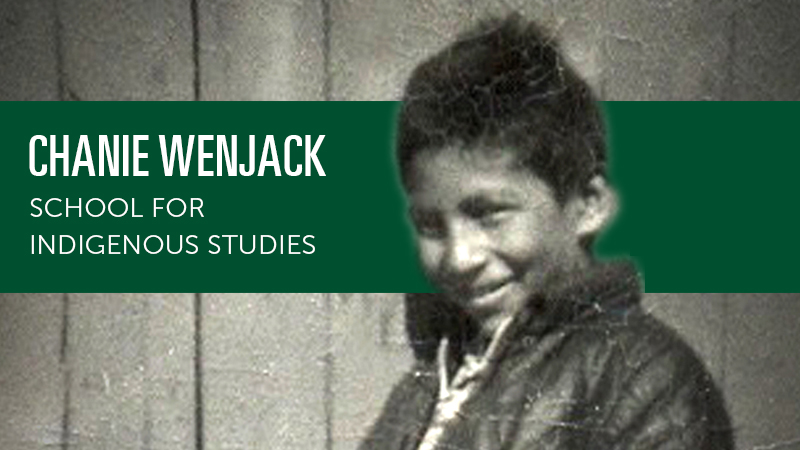
The establishment of the Chanie Wenjack School for Indigenous Studies was approved by Trent’s Senate in April 2017 and officially launched on March 2, 2018.
This school was proposed to further the key components of the mission of Indigenous Studies:
- to promote and engage in Indigenous scholarship based on Indigenous knowledge paradigms;
- to prepare the next generation of Indigenous Studies scholars at the undergraduate and graduate levels;
- to establish strong collaborative networks of Indigenous Studies research across disciplines and geographies;
- to improve the everyday life experiences of Indigenous peoples by educating non-Indigenous/settler Canadians about our mutual histories and treaties and promoting respectful, reciprocal relations that recognize Indigenous cultures, languages, sovereignties and territories.
Trent’s new implementation of the requirement to graduate with at least a half credit in Indigenous Studies will also help to ensure that these goals are achieved. Trent University hopes to inform 10 000 students over the next 4 years to ensure that each person who graduates from Trent will have some exposure to the truth. This will help provide a foundation, however fragile that might be, for reconciliation.
At Trent 43 years ago, in 1974, mostly Indigenous students wanted to name Otonabee College Wenjack College. However, the University did not want to name the college after someone who ran away from school. Trent believed that since this is a school, it would set a bad precedent. This upset many students and the Wenjack family who appreciated what the students were trying to do. As a compromise, Trent named the Wenjack Theatre for Chanie Wenjack from Marten Falls, Ontario. This was an early expression of Reconciliation – acknowledging this child’s death and the importance his life has had for all of us and will continue to have until Canada learns how to be in a good relationship with the First Peoples.
Chanie Wenjack was a young Anishinaabe boy from Marten Falls in northern Ontario. At age 9, he was sent to Cecilia Jeffrey School in Kenora in 1963, located about 400 miles south-west of this home. This residential school was supported by The Department of Indian Affairs and operated by the Presbyterian Church of Canada. Chanie attended this school for three years until mid-October of 1966, when he and two friends escaped the school in an effort to reach home. By walking along the railway tracks from Kenora, the three boys managed to reach Redditt, a small town about 30 miles from Kenora where a friend kept them overnight. The following day, the boys traveled three more miles to stay with the uncle of Chanie’s two friends. When they arrived, conditions there made it impossible for Chanie to stay with them for any length of time. Without any other option, on October 21 Chanie set out by himself for home, with a little food, some matches and dressed only in the light clothing which he had been issued by the school. Two days later and about twelve miles from where he left his friends, a railway engineer discovered his body.
Chanie Wenjack’s life experience signifies the collective story of Indigenous children in residential schools: they just wanted to go home. In his short life, Chanie Wenjack struggled against the nation’s ceaseless encroachment on Indigenous peoples and the broken treaties. Naming this theatre in honour of Chanie’s life recognizes Trent University’s commitment to supporting Indigenous peoples.
